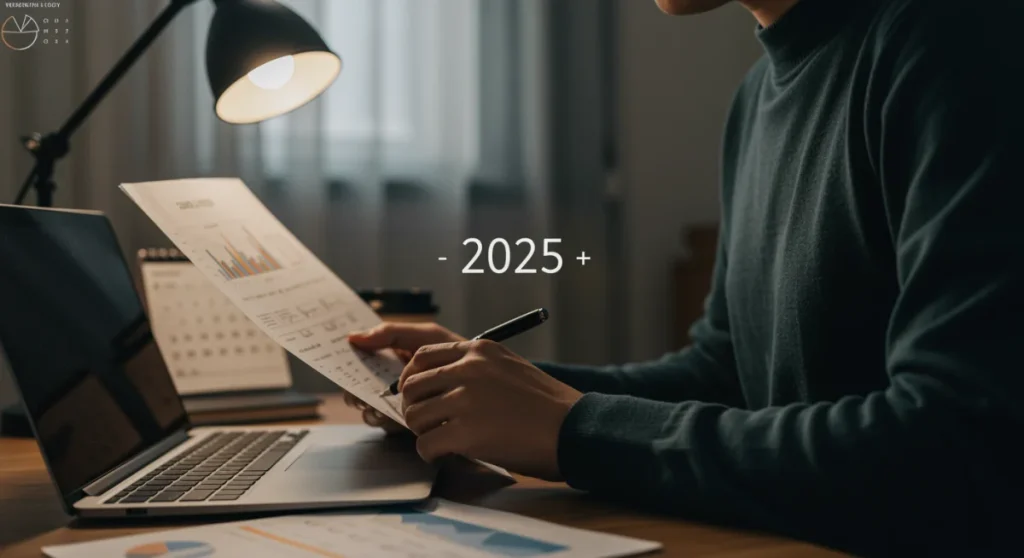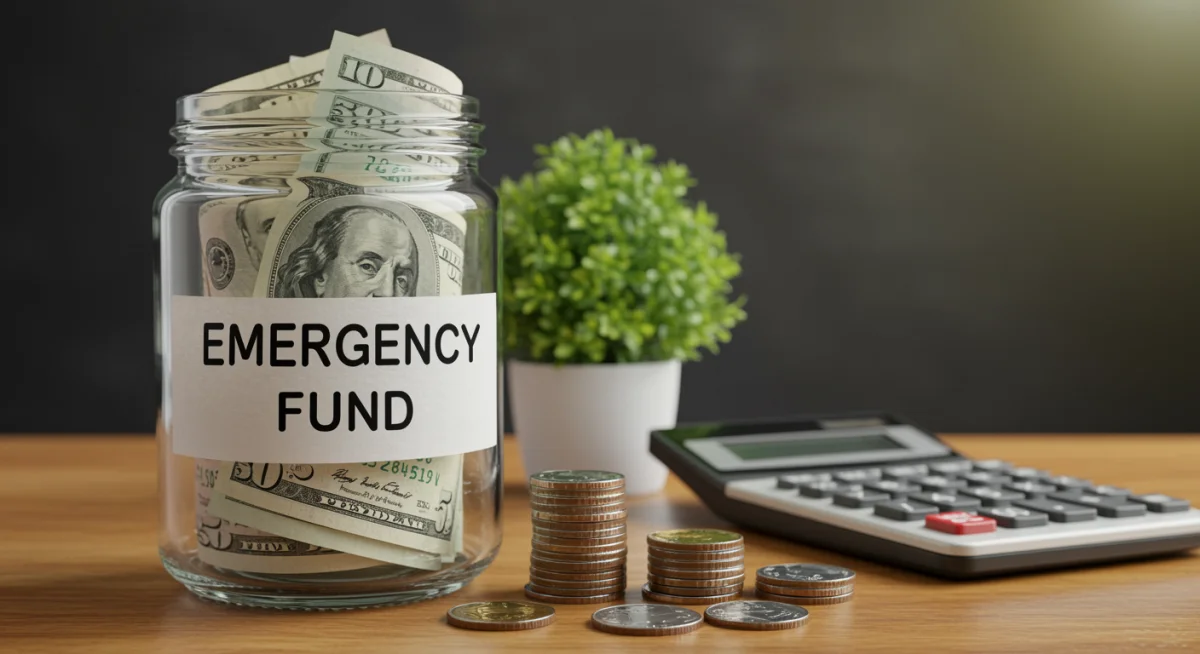Recession Preparedness 2025: Essential Financial Planning

Proactive financial planning is crucial for navigating potential economic downturns, focusing on building resilience through strategic savings, debt management, and investment diversification.
The economic landscape is constantly shifting, and while no one can predict the future with absolute certainty, understanding potential risks and preparing for them is a hallmark of sound financial management. As we look towards 2025, the conversation around a potential recession is gaining traction among economists and financial experts. This article will guide you through the essential financial moves to make now, focusing on recession preparedness 2025, to safeguard your economic well-being and emerge stronger on the other side.
Understanding the Economic Climate for 2025
Before diving into specific actions, it is vital to grasp why a potential recession in 2025 is a topic of discussion. Various indicators, such as inflation trends, interest rate hikes, geopolitical events, and consumer spending patterns, contribute to these forecasts. While these are just predictions, they serve as a call to action for individuals to review and fortify their financial positions.
Economic cycles are a natural part of capitalism, characterized by periods of expansion and contraction. Recessions, though challenging, are not unprecedented. They present opportunities for those who are prepared to consolidate their financial foundations and make strategic adjustments. Being informed about these broader economic forces allows for more effective personal financial planning.
Key Economic Indicators to Watch
- Inflation Rates: Persistent high inflation can erode purchasing power and signal economic overheating, often leading central banks to raise interest rates.
- Interest Rates: Rising interest rates by the Federal Reserve aim to cool inflation but can also slow economic growth, potentially triggering a recession.
- Employment Data: A significant increase in unemployment rates is a strong indicator of an economic downturn.
- Consumer Spending: A sustained decline in consumer spending, which drives a large portion of the U.S. economy, can precede a recession.
Monitoring these indicators can provide valuable insights into the health of the economy. While individuals cannot control macroeconomic factors, understanding them empowers us to make proactive choices. The goal isn’t to panic, but to plan with prudence and foresight, ensuring our financial strategies align with potential future realities.
Building a Robust Emergency Fund
The cornerstone of any sound financial plan, especially when preparing for economic uncertainty, is a robust emergency fund. This fund acts as a financial buffer, providing liquidity to cover essential expenses during unexpected job loss, medical emergencies, or other unforeseen circumstances. A well-stocked emergency fund can prevent you from dipping into retirement savings or incurring high-interest debt during a recession.
Experts typically recommend saving at least three to six months’ worth of essential living expenses. However, in anticipation of a potential recession, extending this to six to twelve months can provide an even greater sense of security. Calculating your essential expenses involves identifying non-negotiable costs such as housing, utilities, groceries, transportation, and insurance, excluding discretionary spending.

Strategies for Supercharging Your Savings
- Automate Transfers: Set up automatic transfers from your checking account to your savings account each payday to ensure consistent contributions.
- Cut Discretionary Spending: Temporarily reduce non-essential expenses like dining out, entertainment, and subscriptions to free up more cash for savings.
- Boost Income: Consider a side hustle, freelance work, or selling unused items to accelerate your emergency fund growth.
- High-Yield Savings Accounts: Store your emergency fund in a high-yield savings account to earn more interest while keeping the funds accessible.
The process of building your emergency fund should be prioritized above almost all other financial goals during times of economic uncertainty. It provides peace of mind and the flexibility needed to weather financial storms without severe long-term consequences. Having this safety net in place is a critical step in your recession preparedness plan.
Aggressive Debt Reduction Strategies
High-interest debt can become a significant burden during a recession, especially if income streams become unstable. Reducing or eliminating consumer debt, such as credit card balances and personal loans, should be a top priority. Lowering your debt obligations not only frees up cash flow but also reduces financial stress, allowing you to focus on other aspects of your financial resilience.
Focusing on debt reduction now means you’ll have fewer mandatory payments to make if your income takes a hit. This improves your debt-to-income ratio, which can be beneficial if you need to access credit in an emergency. Furthermore, paying off high-interest debt is often a better return on investment than many traditional savings vehicles, given current interest rates.
Methods for Tackling Debt Effectively
- Debt Avalanche Method: Prioritize paying off debts with the highest interest rates first, saving you money on interest over time.
- Debt Snowball Method: Focus on paying off the smallest debt first to gain momentum and motivation, then move to the next smallest.
- Consolidate Debts: Explore options like balance transfer credit cards or personal loans with lower interest rates to consolidate multiple debts into one manageable payment.
- Negotiate with Creditors: If you’re struggling, contact your creditors to discuss potential lower interest rates or payment plans.
By actively reducing your debt load, you are essentially fortifying your financial fortress against potential economic shocks. This proactive approach ensures that your monthly budget has more breathing room, which is invaluable during a period of economic contraction. Debt freedom is a powerful tool for financial stability.
Diversifying Investments and Portfolio Review
Recessions can significantly impact investment portfolios, making diversification and a thorough portfolio review essential steps for recession preparedness 2025. While market downturns can be unsettling, they also present opportunities for long-term investors. A well-diversified portfolio is designed to mitigate risks by spreading investments across various asset classes, industries, and geographies.
Reviewing your portfolio means assessing your risk tolerance and ensuring your asset allocation aligns with your financial goals and timeline. During periods of economic uncertainty, some investors might consider rebalancing their portfolios to become more conservative, perhaps by increasing their allocation to less volatile assets like bonds or cash equivalents. However, it’s crucial to avoid making rash decisions based on short-term market fluctuations.
Smart Investment Moves for Uncertainty
- Rebalance Your Portfolio: Adjust your asset allocation to maintain your desired risk level. If stocks have performed well, you might trim them back to your target percentage.
- Consider Defensive Sectors: Industries like consumer staples, utilities, and healthcare tend to be more resilient during economic downturns.
- Dollar-Cost Averaging: Continue investing a fixed amount regularly, regardless of market fluctuations. This strategy can reduce risk and capitalize on lower prices during a downturn.
- Evaluate Real Estate Holdings: Understand the local real estate market and your equity. If you have investment properties, assess their cash flow and tenant stability.
Consulting with a financial advisor can provide personalized guidance tailored to your specific situation and risk profile. They can help you make informed decisions about your investments, ensuring your portfolio is robust enough to withstand potential economic headwinds while still positioned for long-term growth. Diversification is not a guarantee against losses, but it is a powerful risk management tool.
Securing and Diversifying Income Streams
One of the most significant impacts of a recession is often job insecurity or reduced income. Proactively securing and diversifying your income streams can significantly bolster your financial stability. This involves evaluating your current employment situation and exploring additional avenues for income, providing multiple layers of financial protection.
For many, a single job is their primary income source. However, relying solely on one stream can be risky during an economic downturn. Developing additional skills, exploring freelance opportunities, or even starting a small side business can create alternative income streams that act as a safety net. This not only provides financial resilience but also fosters personal and professional growth.
Strategies for Income Security
- Skill Development: Invest in learning new skills that are in demand, making you more adaptable and marketable in the job market.
- Networking: Actively engage in professional networking to build connections that could lead to new opportunities or insights into job market trends.
- Side Hustles: Explore ways to monetize your hobbies or skills through freelancing, consulting, or starting a small online business.
- Contingency Planning: Understand your current job’s stability and have a plan in place for what you would do if your income were to be affected.
By taking steps to secure and diversify your income, you are not just preparing for a potential recession; you are building a more resilient financial future overall. This proactive approach transforms potential vulnerabilities into strengths, ensuring you have options and resources even when the economic climate is challenging.
Reviewing and Adjusting Your Budget
A recession often necessitates a closer look at where your money is going. Reviewing and adjusting your budget is a fundamental step in recession preparedness 2025. This process allows you to identify areas where you can cut back, reallocate funds, and ensure your spending aligns with your financial priorities during uncertain times. A tight, well-managed budget is your most powerful tool for maintaining financial control.
Start by tracking all your income and expenses for a month or two to get a clear picture of your spending habits. Categorize your expenses into essential and non-essential. This distinction is crucial for identifying areas where you can make significant cuts without impacting your basic needs. The goal is to maximize savings and minimize unnecessary outflows.
Budgeting for Economic Downturns
- Identify Non-Essential Spending: Pinpoint areas like dining out, entertainment, subscriptions, and luxury purchases that can be reduced or eliminated.
- Negotiate Bills: Contact service providers (internet, cable, insurance) to see if you can negotiate lower rates or find more affordable alternatives.
- Meal Planning: Plan your meals and cook at home more often to significantly reduce grocery and restaurant expenses.
- Transportation Alternatives: Explore carpooling, public transport, or cycling to save on fuel and vehicle maintenance costs.
An adjusted budget isn’t about deprivation; it’s about strategic allocation of resources. By being mindful of every dollar, you gain greater control over your financial situation. This proactive budgeting allows you to direct more funds towards your emergency fund, debt reduction, or other critical financial goals, strengthening your overall resilience.
Leveraging Professional Financial Guidance
Navigating the complexities of a potential recession can be daunting, and seeking professional financial guidance can provide invaluable support. A qualified financial advisor can offer personalized strategies, help you understand your risk exposure, and assist in making informed decisions tailored to your unique circumstances. Their expertise can be particularly beneficial in optimizing your recession preparedness 2025 plan.
Financial advisors can help you assess your current financial health, set realistic goals, and develop a comprehensive plan that covers everything from budgeting and debt management to investment diversification and retirement planning. They can also provide an objective perspective, helping you avoid emotional decisions during volatile market periods, which is a common pitfall for individual investors.
Benefits of Expert Financial Advice
- Personalized Strategy: Receive a financial plan specifically designed for your income, expenses, goals, and risk tolerance.
- Market Insights: Gain access to expert analysis of economic trends and their potential impact on your finances.
- Investment Optimization: Get guidance on how to diversify and rebalance your portfolio to protect against downturns and capture opportunities.
- Emotional Discipline: A professional can help you stick to your long-term plan and avoid panic-driven decisions during market volatility.
Choosing the right financial advisor is key. Look for certified professionals (e.g., Certified Financial Planner™) who operate as fiduciaries, meaning they are legally obligated to act in your best interest. Engaging with a financial expert can provide clarity and confidence, ensuring your financial moves are strategic and effective in preparing for any economic challenges ahead.
| Key Financial Move | Brief Description |
|---|---|
| Emergency Fund | Build 6-12 months of essential living expenses to cover unforeseen events. |
| Debt Reduction | Prioritize paying off high-interest debt to free up cash flow and reduce burden. |
| Investment Diversification | Rebalance portfolio across various assets to mitigate risk during market volatility. |
| Income Diversification | Develop multiple income streams to enhance financial security against job loss. |
Frequently Asked Questions About Recession Preparedness
While three to six months of essential living expenses is a common recommendation, for robust recession preparedness, aiming for six to twelve months provides a stronger safety net. This larger fund offers greater flexibility and peace of mind during extended periods of uncertainty.
It’s generally wise to have a small starter emergency fund (e.g., $1,000) first. After that, prioritize paying off high-interest debt, like credit cards, as the interest saved often outweighs the returns from a savings account. Once high-interest debt is managed, then focus on fully funding your emergency savings.
Diversify by spreading investments across different asset classes (stocks, bonds, real estate), sectors (consumer staples, healthcare, technology), and geographies. Consider rebalancing to include more defensive assets during uncertain times, and avoid concentrating too much in a single investment type or company.
No, it’s never too late to start. Even small steps taken now can make a significant difference. Begin by assessing your current financial situation, creating a budget, and prioritizing one or two key areas like building a small emergency fund or tackling high-interest debt. Consistency is key.
A side hustle provides an additional income stream, reducing reliance on a single job. This extra income can be directed towards building your emergency fund, accelerating debt repayment, or investing. It also offers a potential safety net if your primary employment is affected during an economic downturn, enhancing overall financial security.
Conclusion
Preparing for a potential recession in 2025 is not about fear, but about empowerment and proactive planning. By focusing on building a robust emergency fund, aggressively reducing debt, diversifying your investments, securing multiple income streams, and carefully managing your budget, you can significantly enhance your financial resilience. These essential financial moves are not merely reactive measures but fundamental principles of sound personal finance that will serve you well, regardless of the economic climate. Taking these steps now ensures that you are well-positioned to navigate any challenges and seize opportunities that may arise, safeguarding your financial future and providing invaluable peace of mind.


